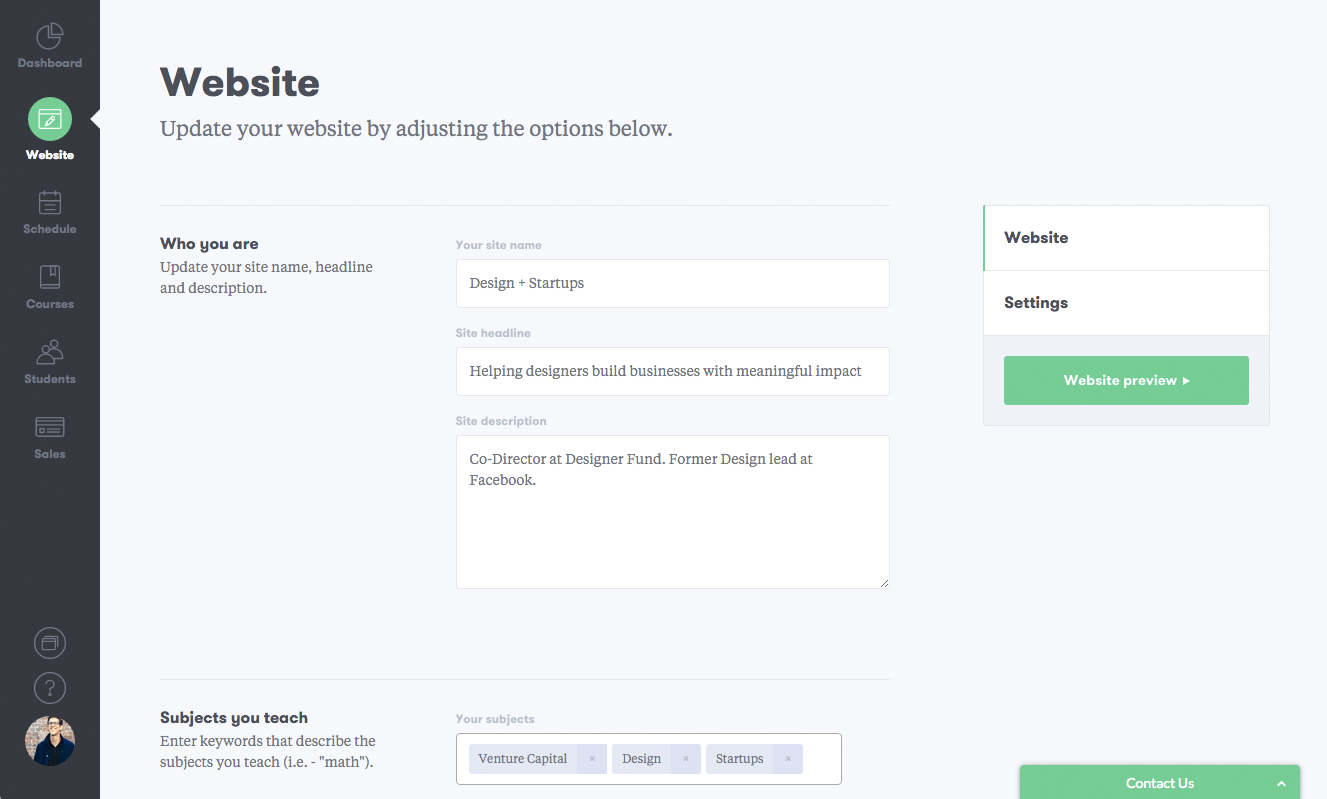Introducing Coach (Now Podia): A New Way to Run Your Tutoring Business
Insights from designer founder Spencer Fry
In today’s quickly evolving education landscape, the demand for tutors continues to rise. Students all over the world are seeking experts to help them master subjects and skills while at the same time teachers and experts are looking for ways to help people learn better. Unfortunately, there are very few tools for tutors to effectively run their businesses. This keeps many teachers from becoming tutors, makes running a tutoring business frustrating, and makes it difficult for people to connect with existing tutors.
These are the insights that led designer founder Spencer Fry to build Coach. Coach is a beautiful suite of tools that allows tutors to effectively manage scheduling, payments, online courses, and marketing all from one place. Spencer and his team are deeply passionate about helping independent professionals and believe that helping them effectively manage their independent business will allow many more people to follow their passion. We sat down with Spencer to discuss building Coach and what it means to build beautifully designed products and services for education.
Why are you personally excited about the mission of helping independent professionals?
It comes down to two things: (1) I’m friends with a lot of freelancers and (2) I’ve been an entrepreneur my entire life and I know how rewarding it can be to invest in your own business. I wanted to give other independent professionals that same opportunity.
I’ve helped hundreds of people make the transition from employee to entrepreneur and helped guide them through the ups and downs. I believe that I’m in a unique position as a product designer to help people manage, market and grow their businesses, and I’m excited about the good we’ll be doing at Coach.
It’s more of a joy to work on a product that’s well-designed. Developers are happier, marketers are more jazzed up about their work, and customers love a well-designed product.Spencer Fry

How has your background as a designer influenced building the company and product?
My background has helped influence every part of Coach, from product to marketing. In terms of design, we’re very careful about staying “on brand” and making sure that everything that goes out the door is well-designed and thought through. This is something I learned at Carbonmade and continue to apply with Coach.
It’s also more of a joy to work on a product that’s well-designed. Developers are happier, marketers are more jazzed up about their work, and customers love a well-designed product. We’re constantly hearing from our customers about how much they love our design, which makes us super happy.
Of course, it can be challenging to maintain design quality as an early stage startup as you’re battling the need to ship product and learn quickly. That’s one of the reasons why we chose to use a heavily customized Bootstrap to be able to push product faster. Some designers might frown at this, but it helps us balance maintaining quality and continuing to ship product.
What are some design decisions you made in the product you’re particularly proud of?
I’d say there are several. As I mentioned above, it’s a constant struggle to maintain high-quality design and also ship quickly. We decided early on in our Beta to have a very minimal design aesthetic in favor of faster releases. We knew that we wanted to layer in more detail, but at the same time, we didn’t yet know what the product was going to become.
We also made smart choices in terms of designing a more complete product. We looked at the competitive landscape and saw that nobody was solving both the business side and the marketing side for independent workers. We saw that as an opportunity to build website tools for all of our customers on top of best-in-class business tools (such as scheduling, online payments, and content.)

You have a distributed team – what are some products or processes that allow you to design and develop the product effectively?
All of my four startups have had distributed teams and we all know that the two biggest challenges are communication and product management. For those two things we use Slack and Trello. Slack has amazing integrations with Trello, so everything that happens on Trello, pipes right into Slack.
We probably use email internally no more than once a month and stick to #product and #marketing channels in Slack for any discussions. I’ve always found that if you try and use more than a few tools that the whole system will come crashing down as nobody will use everything.